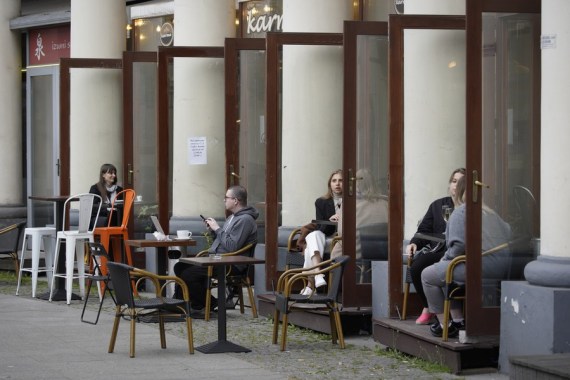Polish gastronomic businesses struggle in dire straits due to pandemic
Published : 17 Apr 2021, 22:03
With another partial COVID-19 lockdown in full swing in Poland, gastronomic businesses are in dire financial troubles, with many, despite government aid, facing bankruptcy, reported Xinhua.
Michal Maciag, a bar owner in central Warsaw, had lost three businesses and had to layoff most of his 70 employees since the start of the pandemic. Now a year after the pandemic and related restrictions, he is sure he won't be able to keep PiwPaw.
PiwPaw is one of thousands of businesses that got into deep financial problems due to the pandemic. Pubs have been closed forcibly, while restaurants are only allowed to offer takeaway meals. For most, it's not enough to keep afloat.
According to the Polish Gastronomy Chamber of Commerce, at least 6,000 businesses disappeared from the market since last year, out of 72,000 active in 2019.
At the start of the year, over half of all gastronomic businesses were in real danger of going bankrupt within three months, said the Polish Credit Information Bureau, the country's credit registrar.
"Compared to 2019, my revenue dropped by 87 percent in 2020," Maciag told Xinhua. "I even sold my house during the first lockdown, just to be able to pay my employees for another month."
According to the Polish Development Fund, which is responsible for allocating government aid funds, 4,000 businesses received the second aid package at the start of the year. But Maciag is hardly enthusiastic about the aid.
"If you want to qualify for the aid, you need to have all your debts with government services cleared. But the fact is that no bars or restaurants are debt-free," Maciag said. "I am an entrepreneur, I want to make my own money. I want to be my own man."
Tomasz Wozniak, who runs a wholesale store that sells small kitchen appliances to hospitality businesses, said: "I know of hotels simply selling rooms for one zloty (about 0.26 U.S. dollar), just to be able to serve meals in their restaurants."
Such "creativity" must be seen in a very serious light, said Jakub Janeta, a legal expert at JJW, a law firm specializing in international business in Poland.
"Many businesses are simply forced to open up despite the lockdown, or face bankruptcy," he said.
Wozniak himself has one additional problem: he doesn't qualify for most of the aid packages, even though his business is fully dependent on the hospitality industry.
"I am not a restaurant or bar (owner), but a retailer, according to the authorities," he said. "So I didn't get any aid for businesses that were affected directly by the pandemic, even though I most certainly was."
Wozniak said his store lost around 50 percent of its revenue. "What saved us so far is that we are also delivering to care homes, and they still needed kitchen equipment."
Despite the hardships, Wozniak said his business will survive the pandemic.
But Maciag is less optimistic about his plight. "It will be the end soon, and I am thinking about emigrating when all this is over," he said.


